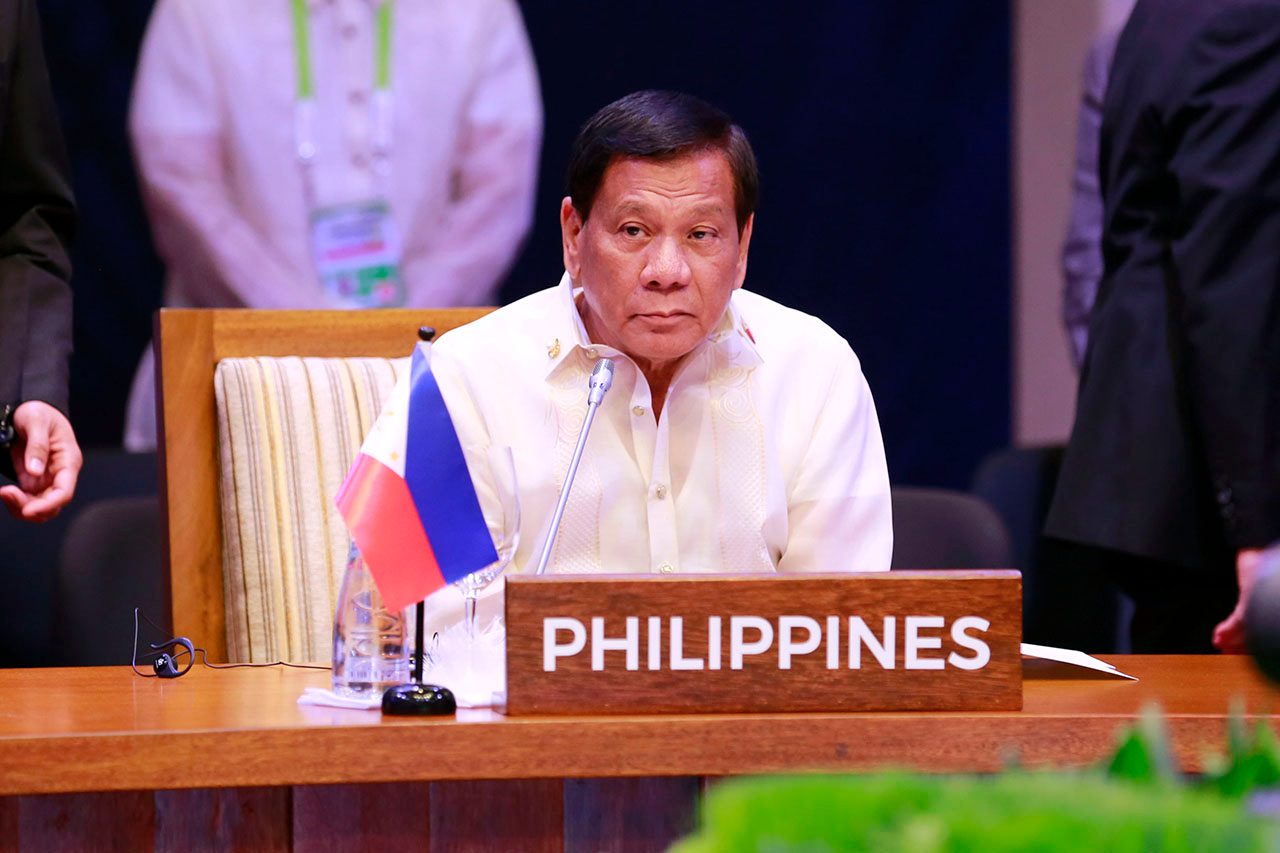SUMMARY
This is AI generated summarization, which may have errors. For context, always refer to the full article.

MANILA, Philippines (UPDATED) – No invitation to the G20 Summit? President Rodrigo Duterte doesn’t need one.
This was Malacañang’s response to Rappler’s report on how the German government, host of this year’s G20 Summit, decided not to invite Duterte, even if the Philippines is the current chairman of the Association of Southeast Asian Nations (ASEAN).
Since the third year of the G20 summit in 2010 until last year, the head of the ASEAN chair was always invited to attend the annual meeting of the world’s 20 leading advanced and emerging economies.
“Tinukutan niya ‘yung nandito, not necessarily na humihingi siya ng approval ng iba (He is focused on affairs here, he’s not necessary asking for the approval of others),” said Presidential Spokesman Ernesto Abella on Wednesday, July 11, during a media interview.
He added that it’s just not Duterte’s style to attend international fora like the G20 Summit, as if to indicate that if he were invited, the President would have turned it down, even if he was leader of this year’s ASEAN chair,
“It’s really not the style of the President because we need to run our own economy. Our progress as a nation is not tied to the approval of others,” he said in Filipino.
“The President is not really the type to ask for that kind of audience,” added Abella.
Duterte, however, had attended other similar events in the past. In November 2016, he flew to Peru to participate in the Asia-Pacific Economic Cooperation summit while in September that year, he was at the ASEAN Summit in Laos.
In May, Duterte attended the World Economic Forum in Cambodia and the Belt and Road International Forum for International Cooperation because the Philippines is ASEAN chairman.
At this G20 Summit, Vietnam was invited instead, as it this year’s host of the Asia-Pacific Economic Cooperation (APEC) Summit.
The spokesman, on Friday, July 14, later claimed that he meant it is not Duterte’s style to lobby for G20 membership.
Host’s prerogative
Abella also claimed that countries usually “lobby” to attend the G20 summit and are not invited.
“First we need to understand that those who join lobby for that. They aren’t invited,” he said.
While countries lobby to join the G20 as a group, it only takes an invitation for a guest country or organization to attend the G20 Summit. Joining the G20, a group of 20 important economies, is different from participating in the summit.
The only other time the ASEAN chairman or official representing the organization was not invited to participate in the G20 Summit was when the grouping debuted in 2008 in Washington DC.
In the bi-annual summits in 2009 in London and Pittsburgh, ASEAN Secretary General Surin Pitsuwan was invited as a participant. From 2010 to 2016, the ASEAN chairman was invited to attend as representative of the fast-developing region in the summit.
Abella later admitted it is the German government’s “prerogative” on who to invite to the summit.
“It’s the prerogative of the G20 to invite, right? So it depends on what they want,” he said.
German Chancellor Angela Merkel, a key figure in the European Union (EU), was among the world leaders who congratulated Duterte ahead of his presidential inauguration last year.
In her congratulatory message to Duterte on May 31, 2016, Merkel said “cooperation between Germany and the Philippines is characterized by friendship and trust based on common values” including “our shared conviction that democracy, human rights, the rule of law, and inclusive economic growth are indispensable for sustainable development.”
The apparent snub comes after Duterte’s repeated tirades against the EU, the subject of his expletives and dirty finger signs in his public addresses, for criticizing his controversial war on drugs.
The Duterte administration had also stopped accepting new grants from the EU, accusing the conditions attached to the aid as “interference” in the country’s internal affairs, which the EU denied. – Rappler.com
Add a comment
How does this make you feel?
There are no comments yet. Add your comment to start the conversation.